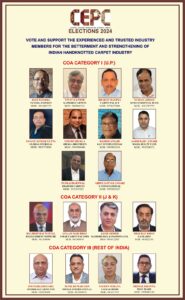Economy Policy Govt may have to stop export subsidies within the next nine months
The sector has continued raising the issue of the refund mechanism for taxes paid under GST being difficult
There is a possibility of the government having to stop export subsidies within the next nine months, if it happens to lose the trade dispute registered by its American counterpart at the World Trade Organization (WTO).
Last month, US trade representative Robert Lighthizer’s office challenged India at the WTO over the entire spectrum of its export promotion schemes. The allegation is that they provide undue benefit, against WTO rules, for Indian exporters.
“Timelines for a prohibited subsidy dispute are normally half of the other disputes. The only way it could go on beyond nine months is if the issue gets appealed. We don’t know how the current logjam at the Dispute Settlement Body (DSB) is going to affect it,” said Abhijit Das, head of the Centre for WTO Studies here.
After the US complaint, the commerce ministry said we had 60 days to respond and settle the dispute through consultation, as established by WTO rules. However, it now appears the allocated time for initial consultation, as well as for every single level of the dispute process, will be effectively cut in half.
“Consultations would have to get over within 30 days. Thereafter, if the dispute isn’t resolved, the US will be at liberty to seek establishment of a panel. Once done, about six months will be required for it to come up with a report. Thereafter, if India decides to appeal, the appellate body would have about 60 days to decide the matter,” Das added.
Crux
On China, the Donald Trump-led US administration has continued to threaten ‘reciprocal tariffs’ over the past two months. On this country, it has alleged an estimated $7 billion worth of benefits to exporters through six major promotion schemes, when WTO rules prohibit nations with the economic credentials of India from doing so. This includes the Merchandise Exports from India Scheme and the Export Promotion Capital Goods Scheme — these provide support to thousands of entities through ‘scrips’ that can be used to pay basic customs duties.
Delhi has argued the law invoked by the US — the Agreement on Subsidies and Countervailing Measures (ASCM) — allows it a window of eight years to phase out these subsidies. ASCM was framed when WTO was set up. It aims at gradually lowering and finally prohibiting of export subsidies provided by nations, so that global trade becomes equitable. However, a limited exception is there for specified developing countries. These may continue to provide export subsidies till they reach a defined economic benchmark of $1,000 per capita income.
India was initially within this group of excepted countries but was informed last year by the WTO secretariat that it had crossed the threshold back in 2015. The US now points to this as proof of India knowingly having bent the rules to boost its shipments, by having continuously expanded export promotion schemes.
Delhi has stood its ground. “Article 27 of the agreement also provides for special and differential treatment. When the agreement came into force, developing countries above the threshold were provided eight years to bring down export subsidies. We had clearly assumed that the same period of eight years is available to countries as and when they cross the threshold,” commerce secretary Rita Teaotia had said earlier. “India has submitted a paper to the negotiating group on rules to this effect every year since 2011,” she had added.
However, trade experts have said India’s position is weak, with no historical precedent for a country winning a reprieve from the WTO on this matter. “Also, India’s current argument is based on an earlier argument that itself hasn’t been accepted from 2011 till now by a single nation,” noted a senior Geneva-based expert.
Accidental luck
However, one ironical help in buying Delhi time on this might be coming from the US itself. The Trump government continues to block the appointment of appellate body members who are effectively chosen as judges by the DSB, the principal body tasked with arbitration between nations.
“The US has single-handedly and consistently blocked the appointment of judges to the seven-member appellate body. Three members have retired and a fourth is set to retire soon,” senior trade expert and Jawaharlal Nehru University professor Biswajit Dhar said. The lack of these judges slows the process and reduces the scope for an immediate trade remedy for developing or smaller economies which badly need it, he added.
After the fourth member retires later this year, the strength will dip to two, rendering the body useless — each case requires at least three sitting members. Even if that doesn’t happen, the number of cases currently open means the work pressure on the appellate body is huge, as of now, and will only get worse, a senior official said. “This might actually help India but we aren’t progressing on the issue by counting on it,” he added
Courtesy by
Business standard
By Subhayan Chakraborty |





